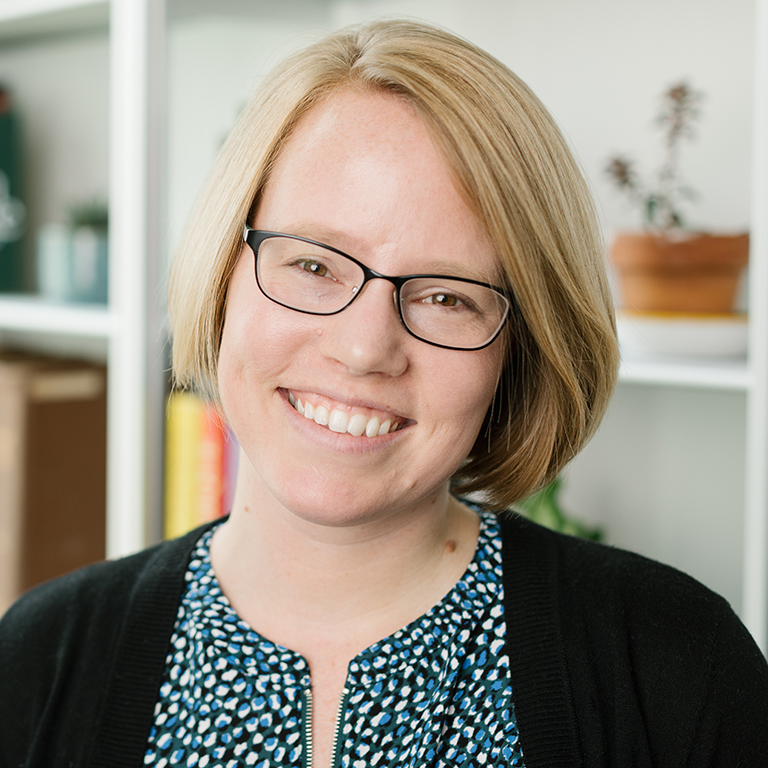Elizabeth K. Hebbard has joined the tenure-track faculty of the Department of French and Italian as assistant professor of French starting in August 2018. As announced previously on these pages, she served as visiting assistant professor here in 2017-18 and came to Indiana University after two years at the University of New Hampshire and a successful Ph.D. completion at Yale University.
Thus far, Professor Hebbard has taught our F300 course Introduction to French/Francophone Studies, F361 La France médiévale (jusqu’à 1500), and a graduate course on Lyric in the Medieval Mediterranean. We were also pleased to be able to offer F410 Literature of the French Middle Ages for the first time in many years to our undergraduates, now that we have a French medievalist back on our faculty roster. “Students here bring a lot of intellectual curiosity to class,” Hebbard says, and she finds the diversity of student backgrounds and majors really adds to class discussions. She was particularly gratified to teach her first graduate seminar recently, where she could really dig into her scholarly passions.
Hebbard is a specialist in French medieval studies, and she is especially interested in manuscript studies. She and three colleagues are currently writing a grant proposal to make medieval manuscripts more accessible to researchers by cataloguing and digitizing the holdings found in non-Research 1 institutions in the U.S. Midwest. When manuscripts are not catalogued, it can be difficult to know what holdings exist, but it is clear that many valuable manuscripts and manuscript fragments are out there, waiting to be studied. The project aims to build community among holding institutions in the region, and to generate new knowledge about the medieval materials they preserve. Some of them, Hebbard suspects, were sold by Otto Ege, a “book-breaker” from Cleveland who, in the early decades of the twentieth century, disassembled manuscripts, selling them piecemeal to institutions and individuals around the country.
At Indiana University Bloomington, Hebbard has quickly integrated into the lively community of medievalists, and she has helped to convene the Occitan Reading Group and the Manuscript Studies Working Group. The former group includes both French and Italian graduate students, as well as colleagues from Linguistics, English, and of course Medieval Studies. “This is a great place to be a medievalist,” says the young scholar.
Hebbard’s own original research focuses on medieval French and Occitan lyric composed in the 12th and 13th centuries, and the notion of authorship (those who wrote the manuscripts documenting the songs were often not the composers) as well as the relationship between lyric text and melodic setting. She is particularly interested in how the term “chansonnier” has been used by scholars somewhat inconsistently, which has, she argues, led to significant undercounting of the number of manuscripts of troubadour lyric in existence.
Her interest in the music of the troubadours reflects the central role of music in Hebbard’s professional and personal life. She studied bassoon as an undergraduate, earning both a B.Mus. in music performance and a B.A. in French and German from the University of Georgia. Music has been an in-road to settling down in Bloomington as well. She has joined the Bloomington Chamber Singers and frequently attends the IU Jacobs School of Music Opera and Ballet Theater. “Bloomington seems so small,” says Hebbard, “but there is a lot going on, especially in the arts.”
There is also a lot going on in Hebbard’s life off campus. She and her partner welcomed their first child into the world last fall, and baby Theo is slated to start “swim” lessons next week. We wish Hebbard and her family well, and are happy they are part of the FRIT community!

 The College of Arts
The College of Arts